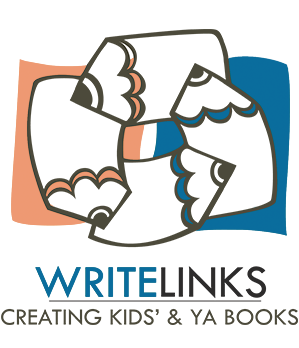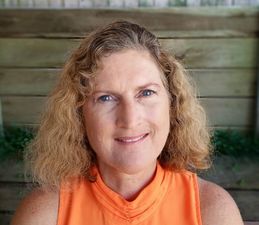Jenny Stubbs – How to present an author talk

How to present at a Festival or School
An insightful presentation by Jenny Stubbs a Teacher Librarian and Story Arts Festival organiser shared some insightful tips for authors considering talking at festivals or schools.
Before you are booked:
TIP 1 – Find out what they want!
It could be educational or curriculum based. It might be about how you inspire children to read, how writers write and create or it might be how your book has links to the curriculum. They could book you for a special week such as Under 8’s, Book Week or Science week. Whatever you believe your talk can deliver; ensure your promotional flyer and website portray the same message.
You can have a YouTube video of yourself presenting your book and a bit about you. Make sure you have an introduction to what book is about and why you wrote it on your website.
Ask the age of the children and duration of sessions as well as the number of sessions the school requires. Is it to one small group or to a large cohort e.g., all year 2’s. It is important that you set times limits you don’t want to be at a school all day for the cost of a teacher’s wage but it needs to be value for money. So ensure your flyer details length of session and what they can expect in the session. Make sure you add something about the audience participation and how you intend to do that, e.g. young kids love humour or puppets, older children might be more engage with drama or power point. All children love music, so if you can play an instrument or your book includes music in some way then ensure you bring your music or cd player.
“There’s nothing worse than not being prepared!”
The size of the group dictates where will it be held, e.g. classroom, library, hall and this will determine how you present your session. A small picture book might not work with a large group, so you need to consider how you can enlarge the book for example copy it onto A3 pages to create a Big Book or scan as a pdf and share it as a slide show on a projector as you read or talk about the text and illustrations.TIP 2 – Timing is very important!
It needs to be right; not too short and not too long for young children. Find out how long each session will be 30 min or 45 or Ensure that you don’t go over time either, children have a busy school curriculum they might have staff waiting for them for other lessons, lunch and play time are all important routines that are scheduled in the school day.
You should know the amount of time each section of your talk will require, so you can schedule each activity in time increments. Regardless of whether you are reading the entire book or just a chapter; time it and make sure that you have the page marked. How long will your audience participation task take? If you are doing a quiz and are awarding prizes at the conclusion, ensure that you set time limits for the quiz or your Q & A session might become rushed. You want to end your presentation talk on a high so make sure it runs smoothly.
If you get the timing right it could secure you more referrals to other schools and result in more bookings.
TIP 3: Practice.
Find a friendly school, perhaps one your children attend, or friend’s children attend so that you can do a FREE practice run to check your timing in return for honest feedback from the staff.
TIP 4 How do you stand out from the crowd?
What you wear can make an impact with the audience or children; whether it’s a wig, coloured hair, character clothing, or masks. You need to be interactive and involve the audience, you could have; props, puppets, or something that the children could act out or say in the story, where they help with sound effects or acting out one of the images in the book. Children love drama so a reader’s theatre might be easy if the text could be turned into a script or use the dialogue to make it into a play. If you’re an author/illustrator draw something with the children to engage them. If you can play an instrument that’s a bonus as you could get them to sing the chorus of a song with you that relates to the book.
Humour is also good getting the children to laugh makes it a memorable experience.
TIP 5 Make sure you ask if there will be a bookshop at the event. This is a good way to generate sales. Never underestimate the cost of an author autographing a book, take a few copies of your book with you and promotional material e.g. a flyer or a bookmark with your website. If they want autographs, make sure you stipulate autographs are only available with a purchase of your book.
Do you need a lot or equipment?
Well that’s entirely up to you but if you don’t have the equipment such as projectors then you need to ask if the organiser is able to supply it. Specialised drawing visual boards might be difficult to source at short notice, so you might have to provide your own. Check that the school or library has your book in its collection, so that children can have had a chance to read it prior to your visit.
After you’ve been booked what’s next?
Ask if they will be promoting your session and offer to send them an image for promotion which would include the copy of the book or books. You might write a short article for school newsletter or local paper.
Tip 6 Ask for feedback from the teacher’s & the kids, questions about what did they like? Ask if you can use any of their testimonials on your website or your promotional material. You could have a follow up activity for the students that compliments the book in some way, a handout, colouring in sheet or writing task.
Jenny has shared a document “Author in schools Guide it’s in the Write Links Folder.
An insightful presentation by Jenny Stubbs a Teacher Librarian and Story Arts Festival organiser shared some insightful tips for authors considering talking at festivals or schools.
Before you are booked:
TIP 1 – Find out what they want!
It could be educational or curriculum based. It might be about how you inspire children to read, how writers write and create or it might be how your book has links to the curriculum. They could book you for a special week such as Under 8’s, Book Week or Science week. Whatever you believe your talk can deliver; ensure your promotional flyer and website portray the same message.
You can have a YouTube video of yourself presenting your book and a bit about you. Make sure you have an introduction to what book is about and why you wrote it on your website.
Ask the age of the children and duration of sessions as well as the number of sessions the school requires. Is it to one small group or to a large cohort e.g., all year 2’s. It is important that you set times limits you don’t want to be at a school all day for the cost of a teacher’s wage but it needs to be value for money. So ensure your flyer details length of session and what they can expect in the session. Make sure you add something about the audience participation and how you intend to do that, e.g. young kids love humour or puppets, older children might be more engage with drama or power point. All children love music, so if you can play an instrument or your book includes music in some way then ensure you bring your music or cd player.
“There’s nothing worse than not being prepared!”
The size of the group dictates where will it be held, e.g. classroom, library, hall and this will determine how you present your session. A small picture book might not work with a large group, so you need to consider how you can enlarge the book for example copy it onto A3 pages to create a Big Book or scan as a pdf and share it as a slide show on a projector as you read or talk about the text and illustrations.TIP 2 – Timing is very important!
It needs to be right; not too short and not too long for young children. Find out how long each session will be 30 min or 45 or Ensure that you don’t go over time either, children have a busy school curriculum they might have staff waiting for them for other lessons, lunch and play time are all important routines that are scheduled in the school day.
You should know the amount of time each section of your talk will require, so you can schedule each activity in time increments. Regardless of whether you are reading the entire book or just a chapter; time it and make sure that you have the page marked. How long will your audience participation task take? If you are doing a quiz and are awarding prizes at the conclusion, ensure that you set time limits for the quiz or your Q & A session might become rushed. You want to end your presentation talk on a high so make sure it runs smoothly.
If you get the timing right it could secure you more referrals to other schools and result in more bookings.
TIP 3: Practice.
Find a friendly school, perhaps one your children attend, or friend’s children attend so that you can do a FREE practice run to check your timing in return for honest feedback from the staff.
TIP 4 How do you stand out from the crowd?
What you wear can make an impact with the audience or children; whether it’s a wig, coloured hair, character clothing, or masks. You need to be interactive and involve the audience, you could have; props, puppets, or something that the children could act out or say in the story, where they help with sound effects or acting out one of the images in the book. Children love drama so a reader’s theatre might be easy if the text could be turned into a script or use the dialogue to make it into a play. If you’re an author/illustrator draw something with the children to engage them. If you can play an instrument that’s a bonus as you could get them to sing the chorus of a song with you that relates to the book.
Humour is also good getting the children to laugh makes it a memorable experience.
TIP 5 Make sure you ask if there will be a bookshop at the event. This is a good way to generate sales. Never underestimate the cost of an author autographing a book, take a few copies of your book with you and promotional material e.g. a flyer or a bookmark with your website. If they want autographs, make sure you stipulate autographs are only available with a purchase of your book.
Do you need a lot or equipment?
Well that’s entirely up to you but if you don’t have the equipment such as projectors then you need to ask if the organiser is able to supply it. Specialised drawing visual boards might be difficult to source at short notice, so you might have to provide your own. Check that the school or library has your book in its collection, so that children can have had a chance to read it prior to your visit.
After you’ve been booked what’s next?
Ask if they will be promoting your session and offer to send them an image for promotion which would include the copy of the book or books. You might write a short article for school newsletter or local paper.
Tip 6 Ask for feedback from the teacher’s & the kids, questions about what did they like? Ask if you can use any of their testimonials on your website or your promotional material. You could have a follow up activity for the students that compliments the book in some way, a handout, colouring in sheet or writing task.
Jenny has shared a document “Author in schools Guide it’s in the Write Links Folder.
Luise Manning grew up in Brisbane and began her career as an Early Childhood teacher. She has been teaching for over 20 years and is passionate about children’s literature and making books come alive. In 2014 she wrote her first children’s book “Hold My Hand” to help teach children about driveway and car park safety. In 2015 she wrote and produced a play “For Sophie’s Sake” about domestic violence and its impact on young families. Luise has received a number of awards for projects to raise awareness of issues affecting our society and in 2017 received an Australia Day Citizen of the Year Award for her city of Ipswich.
Illustrations by Inda Ahmad Zabri
Comments
Sorry, the comment form is closed at this time.






Norah Colvin
Great tips from Jenny humorously illustrated by Inda. 🙂
Maria Parenti-Baldey
This is great. Thank you Jenny. As always detailed and concise.
To Inda for illio – so cute and Luise for blogging.